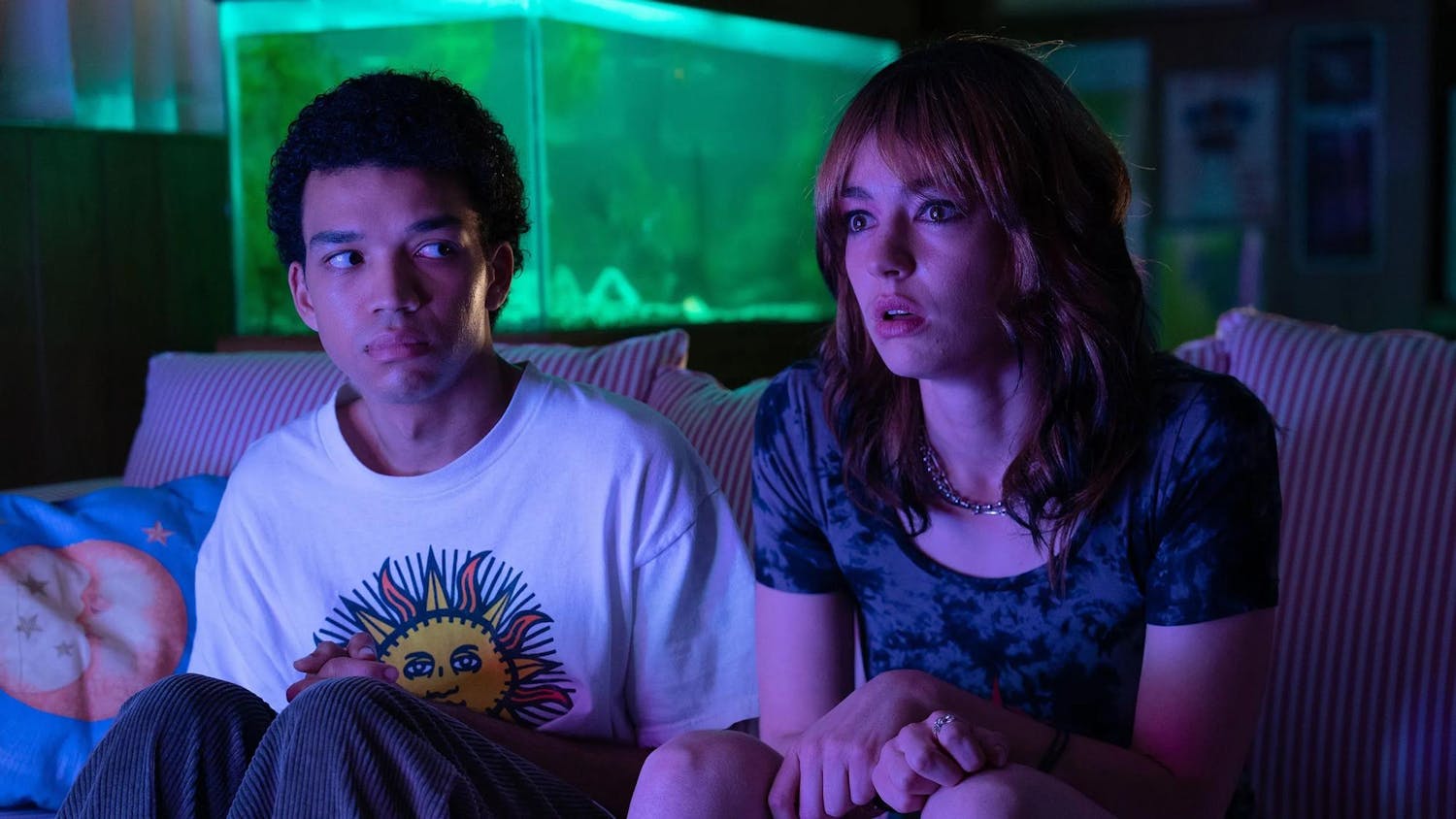College, that liminal space between childhood and adulthood, steeps students in complex social interactions as well as academic pursuits. Theatrical productions on campus this fall will speak to relationships and human connections, exploring questions of identity and separation from the past.
“Water by the Spoonful,” written by Quiara Algeria Hudes MFA ’04 and directed by Associate Professor of Theatre Arts and Performance Studies Patricia Ybarra, will play at Leeds Theater Sept. 26-Oct. 6. Winner of the 2012 Pulitzer Prize, it is the second work in a trilogy by Hudes.
The play portrays a young man of Puerto Rican descent six years after his return from the Iraq War, Ybarra said. Already haunted by acts he committed there, he experiences even greater torment when he discovers his birth mother is “a crack addict who runs an online chat forum for others struggling with addiction and recovery,” she said. She added that the play illustrates the plight of people battling addiction and seeking families in unorthodox places “with humor and compassion.”
The story begins by weaving back and forth between the virtual reality of the online chat room and the physicality of real life, Ybarra said, adding that as the two worlds converge, “surprising connections” between the characters are revealed.
“Sink,” which will run Sept. 20-23 in the Production Workshop Upspace, also deals with unconventional connections between permeable realms.
“It drifts in and out of a world that isn’t quite like ours and plays by its own rules,” said writer and director Ursula Raasted ’14. “This has to do with notions of dreams and the deep collective unconscious and raises the question of whether we’re one or many.”
The story is about “a capsizing relationship between a sailor and siren and how we make or miss connections in life,” Raasted said, citing the often illusory perception of “meaningful coincidences.”
The play departs from a traditional chronological arc and instead introduces its themes through the lenses of interrelated vignettes, Raasted said, adding that it is also partially “devised,” or movement-based.
Though the play draws from philosophical influences, Raasted said it is sprinkled with light comedy and is “far from being heavy and didactic.”
Shakespeare on the Green’s production of “The Winter’s Tale,” directed by Austen Hyde ’14, will run Oct. 17-20. Hyde said the play is unique because the first half is a tragedy and the second a comedy. This binary, along with the “unexpected turn and winds” of the plot, provides the show with “broad-reaching and diverse appeals,” Hyde said.
The tragic portion follows the downfall of King Leontes, who “becomes obsessed with paranoid jealousy when he believes that his wife, Hermione, has cheated on him with his best friend,” Hyde said. But when the story jumps 16 years into the future, circumstances start to turn around, he added.
“It’s really profound and really silly and really uplifting at the same time,” he said. “Things get crazy and wacky, but it ultimately deals with very deep things like faith, truth and human goodness.”
In Tennessee Williams’ “A Streetcar Named Desire,” which will be staged at the Stuart Theatre Oct. 31 - Nov. 10, the complex dynamics of love and marriage are explored through the plight of Blanche DuBois, a faded Southern belle fallen on desperate times. Blanche arrives on the doorstop of her sister and brother-in-law’s home in bustling New Orleans, and though she tries to keep her sordid past separate from her new life, the close quarters of their living situation make that impossible.
“On one level, it’s about three people living together between two rooms — the too-closeness, the claustrophobia and invasion of privacy,” said Professor of Theater, Speech and Dance Lowry Marshall, the play’s director. “But above all, it’s about the desires that drive us through life — love and loneliness, passion and violence, and the pursuit of anything to make you feel safe. It raises the question: Can we really not be alone?”
The play also speaks to social tensions that remain “remarkably contemporary,” Marshall said, citing as examples the complexities of relationships between men and women, domestic abuse, the intermingling of ethnic groups and the struggle of “coming out of a past we hope we’re not still part of.”
“In the Next Room, or the Vibrator Play,” written by Sarah Ruhl and directed by Karen Nilo ’14, also problematizes traditional roles of gender and sexuality. The play will run Oct. 18-21 at the Production Workshop.
The story centers on Mrs. Givings, a young woman during the Victorian era whose husband invents a revolutionary cure for female hysteria — the vibrator, Nilo said. Mrs. Givings and one of her husband’s patients quickly forge a friendship and together they explore “their identities as women and how this relates to sexuality, intimacy and love,” Nilo said.
The play focuses primarily on themes of female sexuality in the context of its “historical creation as a pathology and a disease,” Nilo said, though she added that male characters also drive the plot in pivotal ways.
Despite its setting of an era known for its stuffiness and sexual repression, audiences can “immediately connect to the material because it’s presented in such a lighthearted, funny way rather than taking a super serious approach,” Nilo said.
She added that a healthy dose of sex jokes makes the play feel more modern and relatable while “bringing together the crazy-intellectual theories Brown students love to talk about.”
“Hair!,” the Musical Forum’s fall show, will play Nov. 8-11 at the Production Workshop. The musical follows a tribe of young people in New York City during the 1960s who grow out their hair to make a statement.
“It doesn’t have much of a plot, but it examines a lot of the social, cultural and political movements of late ’60s from the Vietnam War to the free love movement,” director Kate Brennan ’14 said, adding that a sense of “national emergency” remains prevalent in today’s society.
While the show is known as “colorful, energetic and loud at some moments,” Brennan said the show also aims to capture “reflective, more somber moments.”
ADVERTISEMENT




